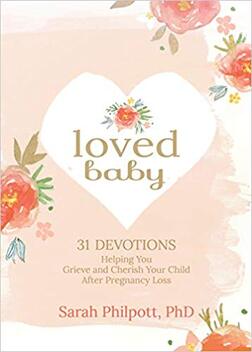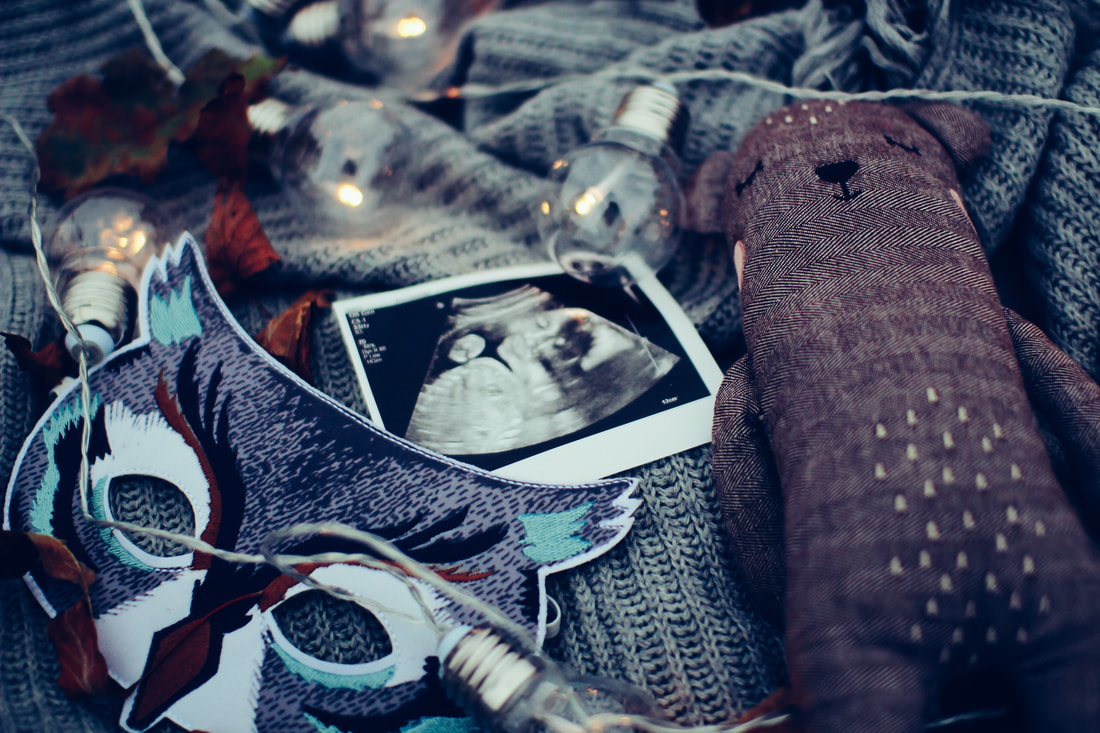|
By: Brian Sinischo, M.D. Experiencing loss is painful, both physically and mentally. As an expectant mother, partner, family member, friend, or health care provider, we all face this loss from our own perspective. I remember the first time I diagnosed a fetal demise by ultrasound. I was in my first year of residency. I was working on the OB floor in Saginaw, Michigan and one of the nurses came to me and asked me to find a baby’s heart tone as she couldn’t find it with the doppler. I didn’t have enough experience to even get anxious about this ultrasound. I took the machine into the room, gelled up the patient’s abdomen, and used the abdominal probe to assess the heartbeat. The baby was 34 weeks along, and it should take four seconds to find, but when I got in the right position there was no cardiac activity. I didn’t realize I changed, but my expression must have shown my thoughts. The mother went into protection mode and started asking this young doctor some hard questions. "What’s wrong? Why is your face like that? Where is my doctor?" Very soon, tears started to come. I kept my composure and explained what I was seeing. I showed her the heart and showed her how there was no movement when there should have been. Then my tears started… I remember wanting to make it all better, but I couldn’t. The program I trained in allowed us to follow patients through their time with us, giving us the chance to learn and watch all of the stages of birth. I will never forget this induction and helping deliver this baby that looked so perfect, and watching as the family grieved on what should have been a joyous day. I left that delivery and cried too. I spent a lot of time listening to this family and how they worked through their grief. It was educational and, honestly, some of the hardest medicine I have had to learn. Much of medicine, I have learned, has nothing to do with drugs or procedures. I feel in many ways I live in two worlds. One, the medical world of terminology, definition, safe practice, protocol, medication, and sterility. The other world is heart-related, compassionate, and not linear. Traditionally, physicians are trained to separate the two worlds, probably so the practitioner can function, despite the tragedy unfolding in front of them. But I’m learning how to blend the two. Here are a few things I have learned to do: 1) Offer ultrasounds. (I drag the ultrasound machine all over my office and the hospital to show patients exactly what is going on inside before any procedure or induction or decision needs to be made.) 2) Attempt to keep medical jargon to a minimum and repeat myself. Often when trauma occurs it is hard for a person to remember what was said and comprehending new information is hard. 3) Allow time. Patients need time to process and make decisions. There are times when patients come to the office three or more times before they make a decision on how to move forward. There is a fine line to be walked when informing patients of risks associated with loss. Watching and waiting is almost always an option but comes with risk of infection, hemorrhage, and sometimes worsened mental anguish. There is no one right answer when deciding how to treat the loss of a baby. It often feels like we are forced to make a decision in an impossible situation, as many families are in a devastated mental state. I have also learned to never take it personally. I have been hit, screamed at, kicked, cried and vomited on, hugged, and prayed with. This process is tumultuous. When someone is going through their worst day, I strive to be calm, compassionate, consistent, and know that it’s okay to cry. Some may consider it unprofessional; I consider it human. If you have gone through the loss of a baby, I’m deeply sorry. I hope compassion is what met you, and I apologize if it was not. We learn as we go and sometimes as medical professionals we learn from our current situation. Most physicians and medical professionals I have had the privilege to work with and desire to serve, understand, and help. During trauma, many emotions are involved and, unfortunately, like my facial expressions from the above episode, are mistakenly shared. In attempted grace, I hope to serve Hillsdale well and grow in the amazing teams with whom I get to serve. Brian Sinischo is a OB/GYN at Hillsdale Hospital.
0 Comments
By: Carissa Caples EPLA Staff Writer
The Early Pregnancy Loss Association focuses on fostering community between women who have suffered the loss of a child. Luckily, we are a few voices in a sea of many who are speaking out about miscarriage and grief, and there are so many others who have valuable perspectives to share. We decided to round up a few articles from others whose voices need to be heard. Let us know which of these were particularly helpful to you, or if you have any others you’d like to add to the list! 1. Maggie O’Farrell: “‘It’s Not Your Fault.’ The Extraordinary Pain of an Ordinary Miscarriage” This is an excerpt from Maggie O’Farrell’s memoir. She presents a poignant portrayal of her experience, which highlights the reality that miscarriage isn’t only the loss of a child, it’s also the loss of a life you thought you would have with them as they grow up. Just a warning, it made me ugly cry. https://www.washingtonpost.com/news/parenting/wp/2018/03/06/its-not-your-fault-the-extraordinary-pain-of-an-ordinary-miscarriage/ 2. Jessica Zucker: “My Mother Said All the Wrong Things After My Miscarriage. But that’s Not a Surprise” In this article, Jessica shows what it’s like to communicate with toxic family members about your miscarriage, and she explains why we need to normalize the topic of miscarriage in conversation. Jessica’s account reminds us that the real problem isn’t the people who say the wrong things, it’s our lack of comfort with discussing the subject. https://www.theguardian.com/commentisfree/2016/jun/01/miscarriage-still-birth-pregnancy-discussions-family 3. Ashley Marcin: “13 Things Only a Woman Who’s Had a Miscarriage Would Understand” Because of the culture of shame and secrecy surrounding miscarriage, many people are uninformed about what it’s like. In this quick read, Ashley highlights 13 little moments women often go through when they experience the loss of a child. How many of these moments have happened to you? https://www.healthline.com/health/pregnancy/things-only-a-woman-who-had-a-miscarriage-would-understand#9 We want to hear from you! Did you find any of these articles especially interesting? What topics would you like to hear about next? Let us know in the comments! We would love to connect with you. Carissa Caples is a Senior Professional Writing and Information Design major at Cedarville University and staff writer for the Early Pregnancy Loss Association. By: Emily Carrington EPLA Founder I have lost three babies in early pregnancy, and I have had one healthy pregnancy. When I was pregnant with my daughter the first trimester was plagued by when. My thoughts were consumed with things like: when I miscarry, when this baby dies, when they can’t find the heartbeat… Loss had been my only experience, and I could not believe this pregnancy would end any other way. Fast forward three years and I have a healthy two year old, and I am pregnant again. This time I am not so bleak, but I am still haunted by my reality. I can now imagine a full term baby and a pregnancy ending in a successful birth because I now believe that pregnancy can end well. But everything is haunted with an *IF. When I was pregnant with my daughter I couldn’t even imagine these things. I couldn’t think about holding her or bringing her home. It all felt impossible. Now that part is better. I can imagine this baby, but every dream comes with an asterisk. Maybe we will announce the gender at Christmas.* *IF I am still pregnant. I need to get some maternity clothes from my sister.* *IF we make it out of the first trimester. I can’t wait to enjoy spring with my newborn* and three-year-old daughter. *IF this baby comes. The baby can sleep with us, then in the playroom, and then the kids will share a room. *IF we have a baby. I was surprised by the *IF. I thought I would either sink into my previous fatalist mood of all doom or I would be completely okay. I was not expecting this middle ground, oscillating between my previous realities: the baby will die and the baby will live. But here we are and I am trying to give myself space to feel all of my feelings, the happy, the sad, the scared, and the unsure. Emily Carrington is a freelance writer, wife, mother, and founder of the EPLA.
 By Maria Servold EPLA Editor After a miscarriage, it often feels like nothing will help - nothing will make the pain go away and nothing will bring joy back into your life. While those feelings are valid, there are ways to find hope and healing after a loss. Previously, we have talked about the importance of sharing your story, relying on friends and family members, and even attending support groups. There are also printed resources that mothers may find helpful - this blog included! “Loved Baby - 31 Devotions Helping you Grieve and Cherish Your Child After Pregnancy Loss,” by Sarah Philpott, Ph.D., is a lovely book that you may find helpful in your healing journey. Philpott is a wife, mother, and author. She founded the Loved Baby support group and the #HonorAllMoms Mother’s Day movement, according to her author biography. Published in 2017, the book features themed devotions and reflections, each ending with practical ideas and a prayer. The reflections take on different issues and themes surrounding pregnancy loss, like “When your Mind and Body Remind You of Your Loss,” “Celebrating the Baby: Creating Rituals,” and “Dads Hurt Too.” The reflections are well-written and personal and the helpful topic-based index allows readers to find the reflection that they need that day. We encourage grieving mothers, or those who know one, to use this book as a resource during pregnancy loss. Maria Servold is an Editor at the EPLA, Assistant Director of the Herbert H. Dow II Program in American Journalism, and Lecturer in Journalism at Hillsdale College.  By: Nick Carrington EPLA Editor I kept the door shut. I felt like an impostor and the less I interacted with others, the less likely they would find out. Sometimes, I would keep the lights off; if I slouched behind my computer, maybe no one else would know I was there. Teaching college kids humbled me, and my anxiety didn’t go away even after a few months of doing it full time. Knock Knock Knock I couldn’t hide for long. My mentor was at the door, checking in on her first-year colleague. I couldn’t let her know. What if she thinks she made a mistake in hiring me? I was young, scared, and alone. “How’s it going,” she asked. Convicted, I couldn’t outright lie.“Not bad…but I feel like every day is a struggle, like I’m learning along with my students.” My mentor, who had taught for more than 30 years, smiled and said something that acted like a balm to my troubled heart: “I know exactly how you feel. My first year of teaching, I stayed one day ahead of my students. They never knew.” We laughed over stories of jotting down notes moments before class started and struggling to answer questions with confidence, even though we knew the answers. She had experienced my fears and come out on the other side. I wasn’t alone; in fact, I wasn’t even that unique. Sharing our stories can be cathartic for us, but it also comforts others who have fresh wounds or have inadvertently opened old ones. Sometimes, we feel alone and too scared to tell anyone about it. In reality, other people have probably been through something similar. But hearing their stories helps us deal with our own emotions, whether feelings of grief, fear, anxiety, or pain. On October 15 of last year, we launched Hope Blooms, our digital publication meant to share your stories and remember your children. In almost a year, we have cried, grieved, and rejoiced together. One thing we know for sure through this process: if you have struggled with miscarriage and all the emotions that come with it, you are not alone. You need to know that all the guilt, emotional turmoil, pain, anger, confusion, and grief you feel are not unique to you, and you need not shoulder that load by yourself. It’s likely your family, friends, and co-workers have experienced something similar and are willing to help. Sharing our stories can be cathartic for us, but it also comforts others who have fresh wounds or have inadvertently opened old ones. Your stories have taught us a lot about miscarriage and grief, and our community of care continues to grow. In year two of Hope Blooms, we want to hear more of your stories. We know that not everyone is a writer. That’s OK; our editorial board will help you express yourself in a way that accurately reflects your experience. Your story matters, not just to you and your family, but to others who have wrestled with miscarriage grief. If you have miscarried or are a loved one of someone who has, we encourage you to write your story. We want to hear it and would love to share it with our community. If nothing else, let us remember your beautiful children who may be gone but will not be forgotten. Send your stories to [email protected] or send us a message on Facebook. Nick Carrington is an Editor for the EPLA and Assistant Professor of Professional Writing at Cedarville University. By Rachelle Williams We were ecstatic. We had been trying and scheduling and planning. Baby number three, our final baby and the missing piece in our family. We were screaming with excitement when the Dollar Store pregnancy test was positive, though I knew I was pregnant before I saw the lines. Our love for this baby was huge and overwhelming. She was immediately included in conversations about the family and had a solid place in all of our lives, even though she was a tiny peanut growing in my womb. She was so very wanted and already a sister, granddaughter, and niece. I, being ridiculously Type A, was already thinking logistics, how to fit three car seats in the van, and when to find a midwife for my first visit. We were so happy. I was super sick as usual, as I had been with both of my other pregnancies, and knew that everything was normal. I felt exactly the same. When I finally came out of the fog and started keeping down food around 11 weeks, I was so relieved. At 12 weeks, I had a dot of spotting and thought nothing of it, but as the day progressed it continued. I nervously cried to my husband, “I think I’m having a miscarriage. This is impossible.” But then it started, the cramping, the contractions, the bleeding, and there was no denying it. It was So. Hard. It was labor, and hard, and messy. I was moaning through each contraction just like birth. It was a birth. Except I knew my baby was dead. I hovered over the toilet sobbing and moaning with my husband. My sister came. It was all fog. My body pushed. I panicked and flushed the toilet. I flushed my baby down the toilet. I was crying and the contractions kept coming and I pushed out a few more pieces of tissue before it finally ended. I am a birth doula, and have helped many women through pregnancy and childbirth, but nothing prepared me for this. I sent a message to the only midwife in the area that I knew (we were new to the area and didn’t yet have a regular care provider) and realized I needed a rhogam shot because I’m RH negative. My husband has a positive blood type, while I’m negative. There was a chance that my body would see a positive blood typed fetus as a foreign body, and make antibodies against the baby. The rhogam shot would protect future pregnancies from harmful antibodies. She connected me with a midwife with hospital privileges in Jackson who could help. My mom came. I was a mess. She was only 12 weeks old but she was ours, we were ready, she was our third. I think I bled for around three or four weeks, and, to be honest, I didn’t want to stop bleeding because that meant she was really gone. We tried our best to explain it all to our other two children, but we were at a loss. After some time, we named her, and that helped, but like any death, grieving is messy and long and confusing. I still cry sometimes, four years later, and it always catches me off guard with the intensity of my feelings. The older kids still talk about her by name every now and again, about the baby who died in mommy’s tummy. They still ask questions. We have since had two more children, twins, perfectly born just shy of a year after our loss. Our family is full, complete, and so crazy loud! I wear a slim band of rose gold on my right pinky with her name and birthdate engraved inside, and I know in some way she will always be remembered and loved. River Rose July 4, 2015 Rachelle has four kids and is raising them along with milk cows, goats, and a barnyard full of mismatched chickens on a dirt road in Hillsdale County. Her passion is childbirth, and is a Doulas of North America birth doula, though she’s taken a break to stay at home with her children and support her husband, who is currently active duty Michigan Army National Guard.
By: Stephanie Gordon EPLA Editor Hello! I’m Stephanie Gordon, and I am a new blog editor for the Early Pregnancy Loss Association! I am a resident of Hillsdale, Michigan. I am married to my husband, Matt, who’s a chiropractor. Together we have two young girls, Eloise (5), and Flora (3). I am also one in four. I experienced miscarriage in 2012, and it shook me to my core. After experiencing miscarriage, I continuously told those around me that I needed to be a voice and to get involved. No one was talking about miscarriage, even in 2012. Not long after my miscarriage, the EPLA was developing, and I reached out to Emily during the early years of the organization and exclaimed my interest of getting involved. I wanted to be there, even in some small way, for other women. I helped design and publish the organization’s website, and I am now here sharing my stories, and stories from others. Here is my miscarriage story. None of this was planned – or part of the plan at that moment in time. Life happened quickly, and I remember seeing that positive pregnancy test. Honestly, the plus sign made me nervous for many reasons, but I knew it’d be OK. Days and weeks passed, and I quickly fell in love with the idea of becoming a mom and growing a human inside of me that was formed out of love. Matt and I were going to enjoy the next 10 months of just us. We knew life was going to change a lot, but we were excited. I wasn’t ignorant to the fact that miscarriage was a possibility, as it is with every pregnancy. I took great care of myself. I ate healthy. I continued to CrossFit and made my coaches aware of my condition. I took my prenatal vitamins every day, and limited caffeine intake. I was doing everything right to grow a healthy human. I was about nine weeks along when one day I remember going to pee and noticed blood. Oh, no... It’s OK, spotting is normal. I knew deep down something wasn’t right, but I tried to ignore it and went about my day. I shared the news with Matt, and he wasn’t too alarmed. Spotting during pregnancy is completely normal (I actually spotted with both of my girl’s pregnancies, too). A few days passed, and the amount of blood I was losing was increasing. Matt and I made the decision to check on myself and the baby. I called my doctor at University of Michigan from bed, and they asked me to come to triage immediately. I sat cold and silent the whole way to the hospital. I was scared, and I saw it on Matt’s face, too. We arrived at U of M, and I was wheeled to triage. I filled out some paperwork, and was admitted to a room. I changed out of my clothes and into a gown. As I got undressed, I noticed I was losing more blood. I sat in a bed and waited for the doctor. They took my vitals – all was well – or so they made it seem. They also took a sample of blood to measure my hormone levels. The young doctor asked routine questions like, “when’s the last time you peed? When was your last period? Is this your first pregnancy? Do you have a history of miscarriages?” The doctor reassured me that everything was going to be OK, and nurses kept asking how I was feeling. I was honestly sliding into a deep depression. Here I was sitting on a white pad, bleeding. Losing my baby. After three hours, I was told I needed a vaginal ultrasound. The tech turned the lights off as I laid on the table. She inserted the wand, and there was our baby. I saw Matt’s face and his facial expression. He knew, but he tried to put on a hopeful face. She took lots of pictures and she didn’t say a word, nor did she answer any questions. She was silent. She removed the wand… so much blood. Tears ran down my face. I was wheeled back to triage and waited for the doctor to come back with results. My doctor came in and sat down. I could tell she was a little nervous to share the news. There was no smile. She started by saying my hcG levels were barely at 7,000 – when I should be at a minimum of 10-20,000. I was hit with immediate sadness even though I was already expecting the worst. Tears started streaming, again. I remember her putting her hand on mine. “This pregnancy is not viable. Let’s make an appointment with your doctor on Monday morning to talk about options,” she said. There’s something really hard about letting go of something you love so much. I knew as soon as the pills were inserted, that was it. I would no longer have my baby. She left the room and Matt and I lost it. He just held me. I remember putting on my clothes and my dirty underwear – another horrible reminder. I don’t even know how I got to the car; I was so numb. I called my parents as we left to tell them we lost the baby. The drive home was full of silence, quiet tears, and broken hearts. My baby was dead inside of me. Monday slowly came, and I met with my doctor. We got one last ultrasound to confirm the miscarriage. Our baby was measuring eight weeks, so it hadn’t been long since the baby died. We talked about options as far as how to “take care of the situation.” Since my pregnancy wasn’t too far along, I was given the option to take what’s called Misoprostol. This option allowed me to insert four pills into my vagina, and my body would go into labor about 4-5 hours later. The other option was a D&C – dilation and curettage - which means dilating the cervix to remove all contents of the uterus. My doctor recommended taking the pills at home, so it could be a private experience that I could do with Matt by my side. I decided to take the Misoprostol at home. I wanted to wait until the weekend to take the pills. I wasn’t ready to let go of my baby that was inside of me, even though it wasn’t alive. There’s something really hard about letting go of something you love so much. I knew as soon as the pills were inserted, that was it. I would no longer have my baby. We both said a long prayer and hung on to those last moments. I tried to insert the pills myself, but I couldn’t. I couldn’t let go. Matt, bless his heart, was able to do it for me, both of us crying the entire time. We laid in bed and waited. All I could do is cry and hang on to my belly. After three hours, I started having cramps, but nothing too major. I was starting to feel almost ill, and my stomach hurt. I laid on Matt’s chest and he read me books. Four hours in, I felt sick to my stomach – a side effect of Misoprostol. After emptying my bowels, I had strong uterine cramps coming on, and I was quickly losing everything from my uterus. It was all happening so fast, and it hurt. Going into this, I knew I couldn’t flush anything down the toilet. I saved everything that exited my uterus. I was determined to give my baby a proper burial. There was a point in time that I fainted on the toilet. Hours 4-6 were torture. I hated every second of it. I was hot and sweaty. I was dizzy. I had just lost my baby. I wondered why I had opted for this option. Never again, I thought. No one really tells you how it’s going to be or how it’s going to happen. I think because it’s different for everyone. My experience with the Misoprostol had its ups and downs. I was happy to go through the procedure at home. I was happy I was able to keep my baby, and I was happy I wasn’t in a hospital. The downside is that I experienced major side effects. I hated how it felt. I had zero control – basically I was giving birth over a toilet, which just sounds sad and depressing. I hated that it upset my stomach. Also, I had to get multiple blood tests afterwards to make sure my hCG hormones were slowly declining. It wasn’t just a one and done thing. I think that’s what made it so hard: weekly blood tests to make sure I was officially no longer pregnant were utterly depressing. The following Mother’s Day, Matt bought a crab apple tree to remember our baby. He also wrote me a beautiful card that read, “Yes, you are a mother. Yes, you lost like a mother. Yes, you loved like a mother.” Those words will always stay with me. That day, we planted the tree and buried the baby underneath the tree. It was beautiful, and I finally felt like I had some sort of closure. I had a long, hard year after that miscarriage. I cried a lot. My sadness turned to anger. I despised every other mother I saw, especially those who got pregnant and didn’t care for their bodies. Essentially, I was jealous, and that also made me mad. It’s not like me to feel that way. It’s hard to explain the emotional torture from miscarriage. But, after that one year anniversary, something changed. I was OK. The sadness never really left (I don’t think it ever does), but somehow I came to terms with what had happened. After that anniversary, we were ready to try again. I was scared and worried we would have a hard time conceiving or keeping a pregnancy. That first pregnancy after miscarriage is terrifying – as I think they all are after experiencing miscarriage. I spotted during Eloise’s pregnancy – and even Flora’s pregnancy. But, I birthed two healthy, beautiful girls. I am forever grateful for the baby I never met. That baby showed me what a mother’s love truly is. It is beautiful, and I wouldn’t trade it for anything. I always dream and wonder who they were and who they would’ve been. Essentially, I was jealous, and that also made me mad. It’s not like me to feel that way. It’s hard to explain the emotional torture from miscarriage. Whenever I feel a little sad, I go visit the crab apple angel tree, and tell my baby I love them so. I don’t ever wish miscarriage on anyone, and I hope more mothers share their experiences with miscarriage. I hope that if you are going through a miscarriage, or have experienced one, that you’ve had someone to turn to – to lean on. It’s not fair. But, know that you are loved. You love your baby, and you will get to meet them one day. Isn’t that a beautiful thought? It will all be OK - eventually. You are strong, and absolutely no less of a woman or mother.
Stephanie Gordon is a paleo food enthusiast, wife, full-time SAHM, marketing professional, and blogger. |
Archives
December 2023
Categories
All
|




 RSS Feed
RSS Feed